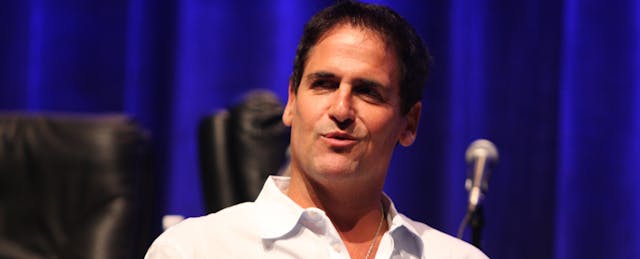We reached out to Mark Cuban to ask about his latest investment in educational technology startup, Copley Retention Systems. He was understandably preoccupied at the time, but followed up with some words of praise for Copley, along with his outlooks on the future of higher education.
EdSurge: How would you describe your investment thesis/approach when you evaluate education technology startups? Is there a common theme?
Cuban: I like to find companies that are the first to take on and solve problems. Ranku, Copley, Degreed, Upstart, Packback. They were all investments I made years ago. I dont like "me-too" investments
You've been quoted as saying that higher education is heading towards an "implosion." Given this assessment, what were 2-3 key factors behind your decision to invest in Copley, which serves the higher-ed industry?
Copley makes higher education more efficient. It is expensive to lose students or have them drag on their education over an extended period. Copley is the leader in helping schools address the needs of at-risk students. That is money in the bank for the school.
How will other edtech businesses that serve higher-ed find space to thrive?
You'll have to ask them.
You're an outspoken critic of student debt and the tuition bubble. How might tools like Copley address this problem?
If we can get more at-risk kids to graduate in four years or less, all while not over-taxing the support services of the school, tuition may have a slight chance of staying flat or going down.
What will the higher-ed landscape look like in 10 years?
It will be consolidated with schools in regions working together to share resources for kids. It's stupid when eight schools in the same city invest in teaching the same freshman introductory classes. There are and will be better ways for schools to reduce costs by sharing those classes that don't define the school. Freshman English or Psychology isn't the reason a student attends a given school.


